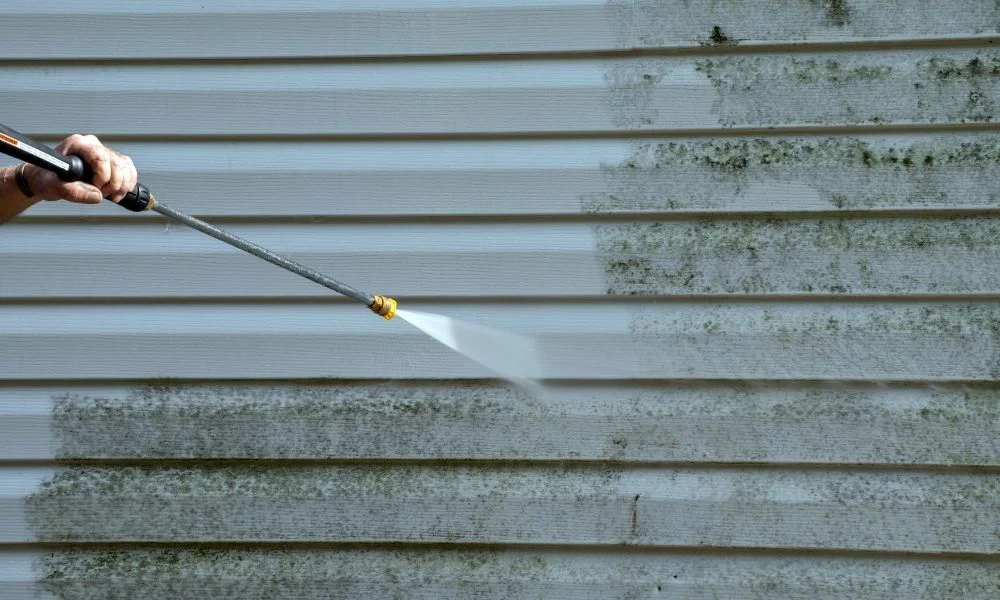
Is Power Washing Safe for Your Home’s Exterior?
Whether you’re doing routine maintenance to keep your home looking fresh or preparing for a new paint job, removing dirt and grime from your exterior is crucial. Recently, power washing has become a popular method for cleaning exteriors. While it looks satisfying and promises quick results, you might wonder: is it safe for your home? The answer isn’t straightforward—it depends on the surface you’re cleaning and the method used.
What is Power Washing?
Power washing, often referred to as pressure washing, uses a high-powered jet of water—often at 2,500 PSI or higher—to blast away dirt, grime, and stains from surfaces. This method can be effective for cleaning extremely durable surfaces like concrete driveways, brick walls, and metal fences. However, using this much force can pose risks to more delicate materials commonly found on homes.
The Risks of Power Washing
Power washing can cause significant damage if not done correctly. The high pressure is not selective and can easily damage materials that are not designed to withstand it. Here are some of the potential risks:
- Damage to Exterior Materials: High-pressure water can strip paint, etch wood, crack vinyl siding, and even damage stucco and brick mortar. If your home’s exterior is covered with delicate materials, power washing can lead to costly repairs.
- Harm to Roofing and Shingles: Power washing can be too harsh for roofing materials, especially asphalt shingles. The intense pressure can strip away the protective granules that extend the life of your roof, leaving it vulnerable to UV damage and water infiltration.
- Safety Hazards: Improper use of a power washer can cause accidents. The powerful jet can shatter windows, remove window seals, and even cause serious injuries if it comes into contact with skin.
A Safer Alternative: Soft Washing
If your home’s exterior includes delicate materials, soft washing is a safer and more effective cleaning method. Soft washing uses a combination of low-pressure water and specially formulated cleaning solutions to gently remove dirt, mold, mildew, and algae. Here’s why soft washing is often a better option:
- Gentle on Surfaces: Soft washing significantly reduces the risk of damage because it uses much lower pressure than power washing. The specialized detergents do most of the work by breaking down grime, making it easy to rinse away with a gentle stream of water.
- Effective Cleaning: The cleaning solutions used in soft washing are designed to target and kill bacteria, algae, mold, and other organic stains. This method not only cleans the surface but also helps prevent the regrowth of these organisms, keeping your exterior cleaner for longer.
- Versatility: Soft washing is suitable for a variety of surfaces, including vinyl siding, stucco, roof shingles, wood decks, and fences. It ensures a thorough clean without the risk of surface damage.
Why Hire a Professional?
While some homeowners might be tempted to try DIY power or soft washing, hiring a professional is the best way to ensure the job is done correctly and safely. Professionals have the expertise to determine the appropriate cleaning method for different surfaces and know how to handle powerful equipment safely. Additionally, they have access to high-quality, environmentally friendly cleaning agents that can effectively clean your home without causing harm.
Final Thoughts
Cleaning your home’s exterior is essential for maintaining its appearance and protecting its value. While power washing might seem like a quick solution, it can pose risks to your home if not used properly. Soft washing offers a safer alternative that is gentle yet effective, making it ideal for a wide range of surfaces. To ensure the best results without any risk of damage, consider hiring a professional who knows the right techniques and products to use.
Contact us today at The Wash Doctor for a free quote! Let our team of experts help keep your home looking its best, safely and effectively. (613) 617-7906.

